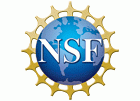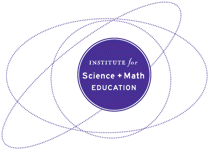Next Generation Science Standards: What’s different, and do they matter?

Why It Matters To You
- Teachers should reflect on and refine how their teaching aligns with the NGSS vision of student learning. They should locate and share professional learning resources with others.
- District staff and PD providers need to be clear about why NGSS is an important change and how it can impact classroom practice.
- School Leaders should support teachers' professional growth and locate resources that support the new vision of science education.
What is the Issue?
Many districts, schools, and educational organizations are working to implement the new vision in the Next Generation Science Standards (NGSS) and the NRC Framework for K-12 Science Education. Educators may wonder: "What's new about these standards? Do the differences really matter for my classroom?" The new vision includes several big shifts for how science should be taught and learned. Tens of thousands of experts reviewed it—including teachers, scientists, educational researchers, and science ed specialists.
Authors:
PHILIP BELL, ANDREW SHOUSE AND TANA PETERMAN
Things to Think About
- In what ways is your teaching practice in line with this vision? What new knowledge, practices, and tools will you and your colleagues need to develop to achieve the vision of the NGSS?
- In what ways do you draw on students' everyday experiences, prior knowledge, cultural practices, and identities in your teaching? Is there more to do?
- What experiences or hobbies do your students have that are relevant to engaging them in engineering / iterative design?
Things to Consider
- Science Content is Best Learned by Engaging in Practices. "Inquiry science" has become a vague notion and has often led to a false separation of "content" and "process." The NGSS performance expectations offer a tight integration of 8 science and engineering practices as they relate to learning and applying disciplinary core ideas while making connections to cross-cutting concepts—a 3D model of learning. This is in strong contrast to teaching "the scientific method" at the beginning of the year and then diving into a series of "content" lessons and lock-step labs. There are multiple models of instruction that can fit this 3D approach.
- Build on Prior Knowledge, Experience & Identity in Instruction. Previously, science teachers were encouraged to identify children's misconceptions and design instruction to unsettle and replace these. This approach was often reinforced with fact-based memorization lessons. We now understand that children's science—related identities and ideas, whether scientifically accurate or not, are deeply grounded in their personal experience of the world—and that it is productive to leverage them as they learn science. NGSS calls for educators to build on these assets whenever possible.
- All Children Can Learn Ambitious Science. The field has often undersold the abilities of young children to do science and underemphasized the importance of ambitious learning goals for all. Research shows that all students can engage in ambitious science learning and problem-solving. Virtually all children come to school ready to learn science. They should be supported in building upon their experiences of the world as they develop conceptual understanding. This is true for children of all cultural backgrounds.
- Engineering, Technology, and Applications of Science are Central to Science Education. The NGSS includes learning goals related to engineering, technology, and applications of science across the K-12 span. It includes a focus on engaging students in the engineering practices involved in iterative design. These goals highlight engineering as a powerful force that serves human interests and can have unanticipated consequences. Across K-12, students should learn about engineering, technology, and applications of science.
Attending to Equity
- The NGSS and NRC Framework outline science literacy goals for all students and call for equity to be at the forefront of any effort to improve science education. Students from all backgrounds should have a fair opportunity to participate in scientific learning experiences that are authentic, relevant, and engaging.
Recommended Actions You Can Take
- Read portions of the NRC Framework for K-12 Science Education online for free. It is the detailed vision behind NGSS.
- Watch this video on the NGSS, another one on why NGSS?, and this extended webinar about the new vision.
- Explore the NGSS and its Appendices.
- Learn about equity and NGSS from the NRC Framework, NGSS Appendix D and associated case studies.
- Join the #NGSSchat twitter community.
- Learn more from this science teacher.
- Explore NGSS@NSTA resources designed to support teachers with NGSS, including a series of webinars.
ALSO SEE STEM TEACHING TOOLS
STEM Teaching Tools content copyright 2014-22 UW Institute for Science + Math Education. All rights reserved.
This site is primarily funded by the National Science Foundation (NSF) through Award #1920249 (previously through Awards #1238253 and #1854059). Opinions expressed are not those of any funding agency.
Work is licensed under a Creative Commons Attribution-ShareAlike 4.0 Unported License. Others may adapt with attribution. Funded by the National Science Foundation (NSF). Opinions expressed are not those of any funding agency.


 Email Feedback
Email Feedback


